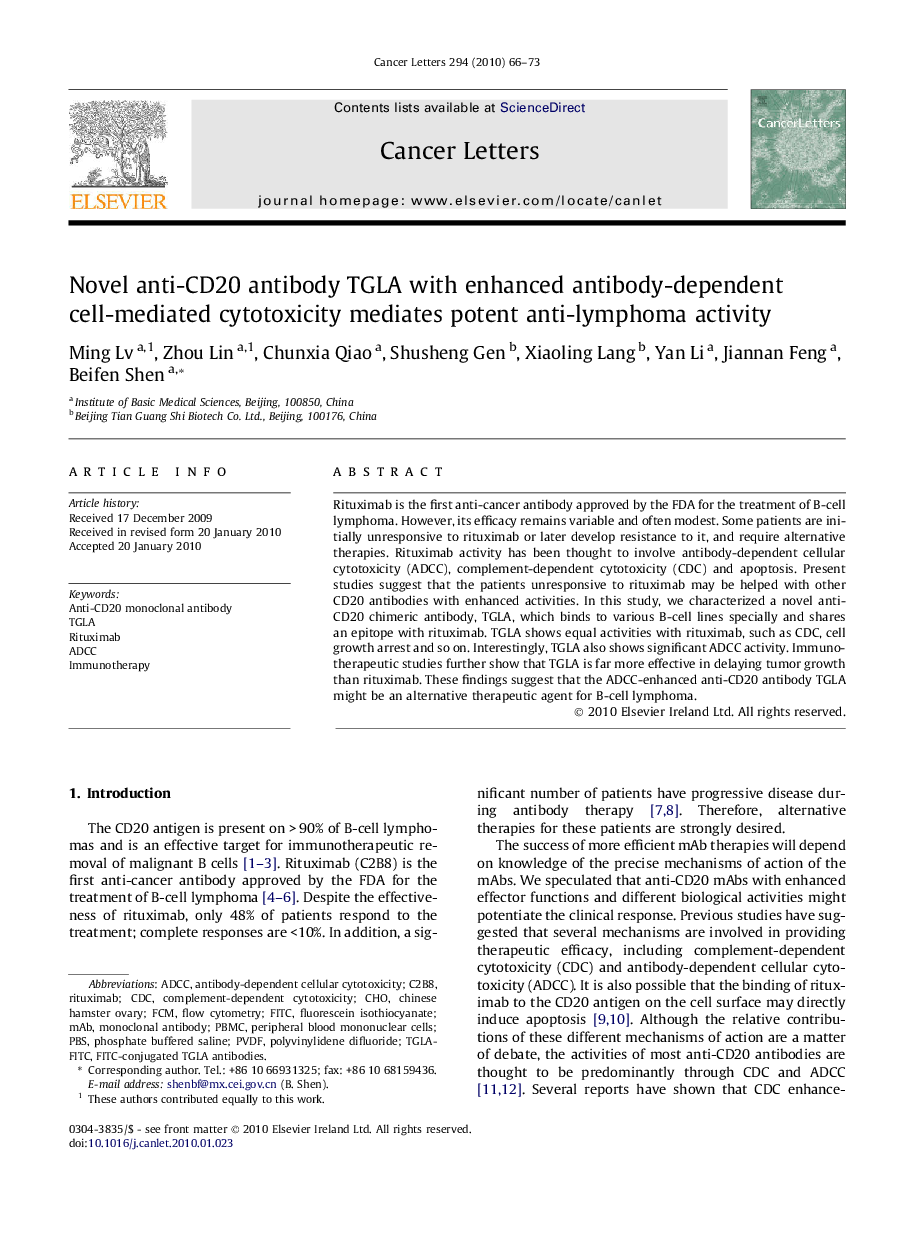| Article ID | Journal | Published Year | Pages | File Type |
|---|---|---|---|---|
| 2116449 | Cancer Letters | 2010 | 8 Pages |
Abstract
Rituximab is the first anti-cancer antibody approved by the FDA for the treatment of B-cell lymphoma. However, its efficacy remains variable and often modest. Some patients are initially unresponsive to rituximab or later develop resistance to it, and require alternative therapies. Rituximab activity has been thought to involve antibody-dependent cellular cytotoxicity (ADCC), complement-dependent cytotoxicity (CDC) and apoptosis. Present studies suggest that the patients unresponsive to rituximab may be helped with other CD20 antibodies with enhanced activities. In this study, we characterized a novel anti-CD20 chimeric antibody, TGLA, which binds to various B-cell lines specially and shares an epitope with rituximab. TGLA shows equal activities with rituximab, such as CDC, cell growth arrest and so on. Interestingly, TGLA also shows significant ADCC activity. Immunotherapeutic studies further show that TGLA is far more effective in delaying tumor growth than rituximab. These findings suggest that the ADCC-enhanced anti-CD20 antibody TGLA might be an alternative therapeutic agent for B-cell lymphoma.
Keywords
PVDFAnti-CD20 monoclonal antibodyCDCADCCFITCPBMCmAbPBSFCMMonoclonal antibodyantibody-dependent cellular cytotoxicityimmunotherapyChoChinese Hamster Ovarypolyvinylidene difluorideRituximabperipheral blood mononuclear cellscomplement-dependent cytotoxicityPhosphate buffered salinefluorescein isothiocyanateFlow cytometry
Related Topics
Life Sciences
Biochemistry, Genetics and Molecular Biology
Cancer Research
Authors
Ming Lv, Zhou Lin, Chunxia Qiao, Shusheng Gen, Xiaoling Lang, Yan Li, Jiannan Feng, Beifen Shen,
